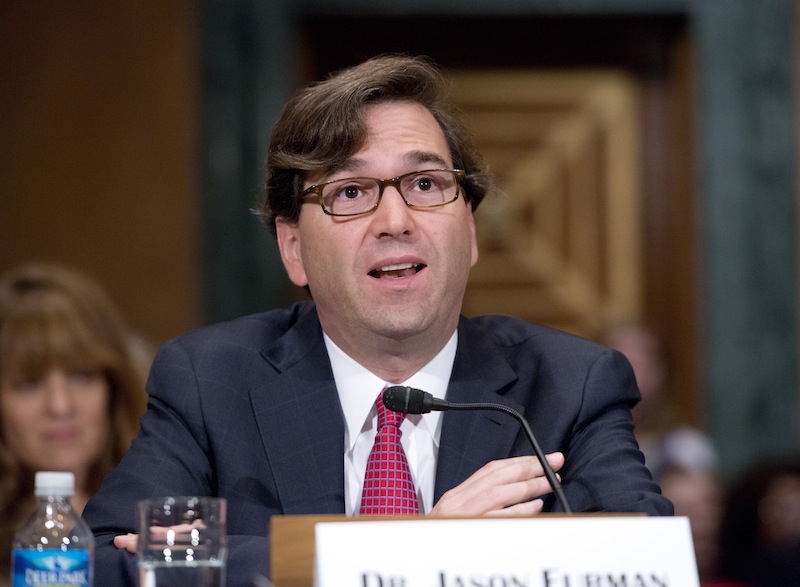The top economic adviser to President Barack Obama sought Thursday to put to bed any doubts that a breach of the debt ceiling would be anything less than catastrophic.
The default demon appeared staved on the same day — House Republicans proposed a temporary increase, which the White House seems amendable to — but that just means it’s likely to rear its head again next month.
The White House will then likely be forced to do battle with skeptical conservatives, both politicians and economists, who have been downplaying the consequences of default. At a Center for American Progress event Thursday, Jason Furman, chairman of the president’s Council of Economic Advisers, explained to a small group of reporters why they were wrong and why a default would likely send the economy back into a recession.
Using fiscal figures from last November, Furman put a potential default into startling context. That month, the federal government ran a monthly deficit of $172 billion. That’s roughly how much the government would have to cut from its spending in a single month if the debt ceiling isn’t increased. To put that in context, the automatic budget cuts known as sequestration — which have dragged down economic growth by an estimated 0.6 percent of the GDP — cut about $40 billion over seven months.
“It’s just a vast, vast, vast fiscal contraction compared to anything we’ve ever done,” Furman said. “Obviously huge uncertainty and confidence effects, delaying decisions, interest rates spiking.”
Furman also dispensed with the idea some lawmakers have put forth that the U.S. Treasury Department could prioritize payments to bond holders when the debt limit is reached, thus avoiding a technical default on U.S. government bonds.
“This has a massive effect on the economy no matter how you handle the debt limit,” Furman said. “No matter who you structured it, no matter who you paid, no matter what you paid, no matter what you did, you couldn’t spend more than you collected.”
“We think it’s a default if you’re not paying Social Security, not paying small businesses or not paying veterans. But regardless of what of what words you use, all of these economic effects are pretty much unrelated to what you are or aren’t paying.”
Such a breach would spell trouble for the economy as a whole, he explained.
On Oct. 17, the federal government would have about $30 billion on hand to help make payments. Within “a very short period of time,” Furman said, that extra money would be gone and the Treasury would be willing solely on incoming tax revenue.
Interest rate hikes would hit mortgages, student loans and business borrowing, among other things. How would the stock market react? “We don’t know,” Furman said. “We don’t want to find out.”
In his testimony to the Senate Finance Committee Thursday, Treasury Secretary Jack Lew reiterated many of the same concerns. He noted that interest rates on Treasury bonds had tripled in a week and reached their highest level since October 2008 — and that was without actual default.
“If Congress fails to meet its responsibility, it could deeply damage financial markets, the ongoing economic recovery, and the jobs and savings of millions of Americans,” Lew said. “I have a responsibility to be transparent with Congress and the American people about these risks. And I think it would be a grave mistake to discount or dismiss them. For these reasons, I have repeatedly urged Congress to take action immediately, so we can honor all of our country’s past commitments.”






